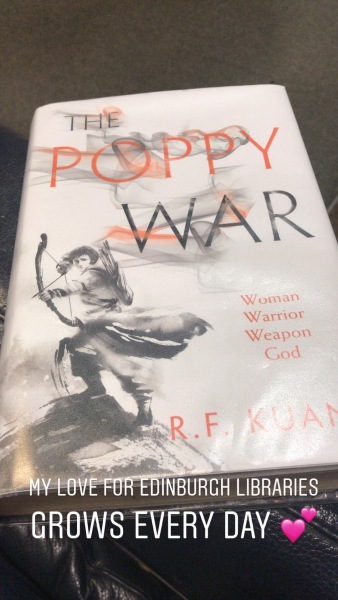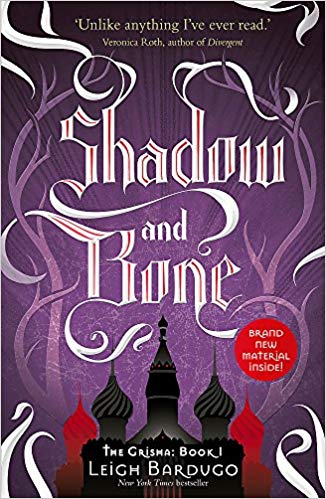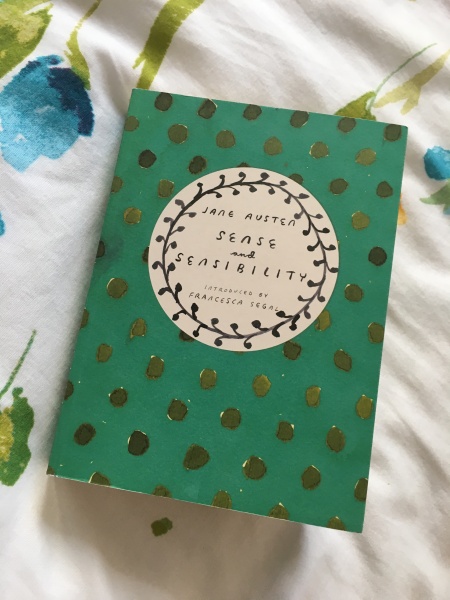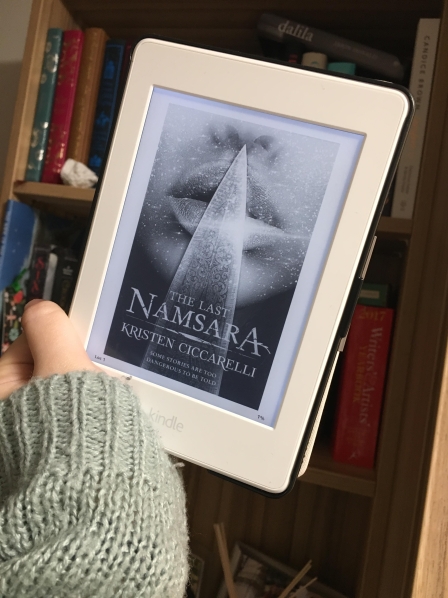I have read some many amazing books that I was lucky enough to receive through Netgalley over the past few months, and I’ve been devouring books so quickly that I haven’t given myself the chance to actually sit down and write review for them. Now, thankfully, I have found the motivation!

These Violent Delights by Chloe Gong is a Romeo and Juliet retelling set in 1920s Shanghai, and honestly that was all I needed to know to be excited about it. I love a retelling of a well known tale, especially if that retelling makes the story more diverse. In this version we follow Juliette Cai, who has returned to her home of Shanghai after living in America for several years to retake her role as heir to the Scarlet Gang. But returning means dealing with things she’s been trying to forget; including running into her first love Roma Montagov, heir to rival gang the White Flowers, and facing their fraught past. But when a mysterious illness means that people on both sides of the gang divide start ripping their own throats out, Juliette and Roma must work together to puzzle out the mystery at the heart of their city, or risk everything they know being torn apart.
I can honestly say I wasn’t expecting too much from this except for it to be a fun quick read, but I got some much more than that, the synopsis really doesn’t do this book justice! This book is a total mix of genres, young adult, historical, romance, with a dash of sci-fi, and moments that almost made me feel like we were teetering on the edge of fantasy, but thankfully Gong handles this is such a interesting and fun way. This book isn’t all about the relationship between Juliette and Roma, and even though it’s an interesting take of the aftermath of their love affair I think it benefits from having such an intriguing plot to propel you through the novel. I don’t want to give too much away because discovering the mystery for myself was one of the parts of this that I loved, but it was fast-paced, dark, and delicately left clues throughout the narrative without it being spoon-fed to the reader, nor made too hard that you couldn’t begin to guess yourself as the plot developed.
The aesthetics and diversity in this novel were really well-handled, clearly showing another example of how important it is to have own voice narratives in the book industry. Shanghai felt vivid and real to me as a reader who has never been, and the 1920s aspect gave it a fun interesting flare which heightened the affective imagery even more. Gong even managed to balance all this and dynamic interesting characters! Juliette is reimagined as a knife-wielding, scary, complex woman, who’s ability to lead a crime syndicate you never doubt. I liked the balance of her being confident in her femininity while also being what you may call a typical “badass” YA female lead. Quite often in novels like this female characters are made to abandon typically female things, and even most emotions, to be considered worthy of the title of “badass” but thankfully Juliette is a character who is unashamedly both. She also deals with being often treated like a foreigner in her own country while enduring the pressure to be this American woman with an American education to get people to respect her, which just adds another layer of depth to her story and development. She was the most memorable character throughout the entire book and has stuck with me the most. But Gong also managed to bring more development to the side characters from Shakespeare’s Romeo and Juliet, including a brewing m/m romance and a trans character. All of whom I hope play a bigger part in the sequel!
Roma was probably the only character that I felt a little lacklustre about, and in retrospect that is probably only because the others shined so much. He’s quiet and introspective, and a refreshing take on the usual Romeo figure I feel like retellings give us. I do hope he gets more development in the sequel as I definitely see the potential of this character but for now he wasn’t someone who stuck much in my mind. I also didn’t feel too much of his Russian culture, not in the way you felt the Chinese and American influences on Juliette and her struggle with both. It was an interesting element, but again I feel like it could’ve been explored in more detail to give an interesting contrast to the Shanghai setting and provide a little more character to Roma.
Overall I did enjoy the romance between Roma and Juliette. I liked the fact that they had a history and we were watching the aftermath; the tension between them was great and it really helped keep that when they were simultaneously drawn to each other and yet were pushing each other away the whole time. I do wish we got more of their back story, more of what they were like before Juliette left, I think it would’ve given just that extra bit of detail that their story needed. At first it did just feel like we were thrown into the middle and expected to know their history, even though we didn’t and we’re drip fed it quite slowly, so I was a little confused at first. I was routing for them and enjoyed their encounters, but I wasn’t as invested as I think I could’ve been. As I hope I am in Our Violent Ends.
Overall this book is an excellent example of a diverse YA novel that retells a familiar tale in a fun, unique way. I really enjoyed my time reading it and am excited for the sequel, but there are definitely things I’m hoping it improves upon in terms of the relationships between the characters.







